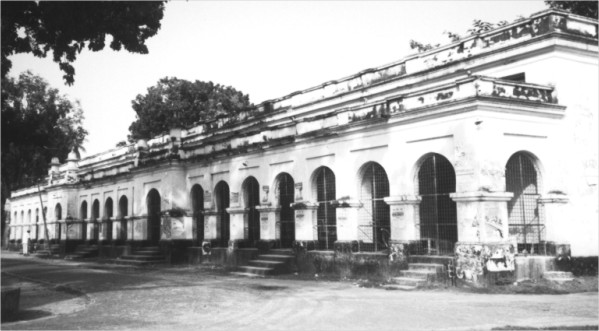Naturally, the political activities that started among the students in Dhaka in February 1948 in the raise of the rejection of Dhirendranath Dutta’s proposal on Bengali language in the session of the Pakistan Constituent Assembly had an active effect in Pabna. A major source of this is the politically conscious students of the local Edward College and other academies, including the Zila school.
Organizations of different ideologies participated in the protest activities related to language and it started at the end of February. The Language Action Committee was formed. According to journalist Abdul Kuddus, the convener of the Sangram Committee is Dewan Lutfar Rahman, secretary of the district Jubo League (probably a liberal), and two joint convenors Mahbubur Rahman and Aminul Islam Badsha. Researcher Dr. M Abdul Alim also presented the same description. (Language movement in Pabna). The initiative of the Sangram Parishad started with the purpose of language related activities.The decision was taken that the strike will be observed on 29th February. In this case the assembly was held on 27th February.
The activities for the strike continued smoothly. The DC of Pabna called a meeting with the leaders of strike in order to stop the strike. But the leaders didn’t agree. As a result the administration issued section 144.
At the same time the Muslim league leaders worked out the activities against the strike as well as the language movement.
But the students didn’t give up. They gathered at the Edward college field on 29th February. They made some tiny groups and formed rallies.
The technique didn’t work, because a vast number of the local people attended this movement. Police arrested some strikers. Despite being arrested the people of Pabna continued the rally all day long. Some people brought some placards. “We want Bengali as our national language” was the most popular slogan then. At a time police started to arrest the main leaders of language movement to keep the situation under control.
The next day the students called on another strike on 1-3 march. The strike was held on the claim of releasing the arrested leaders. Then the administration asked to arrest the main leaders of this movement. Aminul Islam Badshah, Mahbubur Rahman Khan, Lutfur Rahman and Pranati Kumar Roy got arrested.
During the movement and the rally almost every office and vehicle was stopped. 10th march they arrested Rowshan Jan Chowdhury, Mokhles Uddin Mukhtar and Pradip Roy.
Ignoring the repressive policy of the government, some people supported the strike directly. They were Wares Ali, Ansar Ali, Selina Banu, Sunil Chowdhury, Shamsul Islam, Matiar Rahman, Idrees Ali, Abul Fazal etc. Despite the movement being adjourned from Dhaka, it was continued in Pabna. Because the claim was to have released the leaders. Actually the peace treaty signed in Dhaka didn’t make any sense in Pabna.

The supreme leader of this movement in Pabna was Abdul Momin. He was a student leader of Pabna Edward college.
The movement was not remain auxiliary in the Pabna city. It spread all over the district including the subdistrict Sirajganj, Shahzadpur, Bhangura, Santhia, Chatmohar, Sujanagar etc. The arrival of Mawlana Bhashani made the people of Sirajganj more enthusiastic.
The movement also continued during the election of “United Front” in 1953-1954.
In 1955 the Pakistani government recognized Bengali as one of the national languages of Pakistan..
In 1971 Pakistani occupation forces broke the “Shaheed Minar” of Pabna. Then it was reconstructed in 1974 in the independent Bangladesh.
